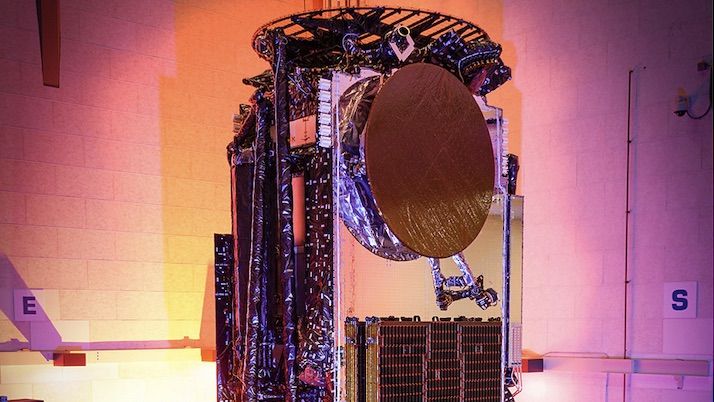SpaceX is poised to launch the world’s largest commercial communications satellite.
On Wednesday (July 26), a SpaceX Falcon Heavy rocket will launch Maxar Technologies’ largest ever satellite, the Jupiter 3. The communications platform will join others in the Hughes Jupiter satellite fleet already in orbit, which provides broadband internet services to North and South America. According to a Hughes statement, the satellite will be the world’s largest commercial communications satellite once it’s fully deployed.
Once deployed, Jupiter 3’s size will rival the wingspan of a commercial airliner, which can range from 130-160 feet (40-50 meters). The Falcon Heavy slated to carry JUPITER 3 to orbit will liftoff from Launch Complex-39A, at NASA’s Kennedy Space Center, in Florida. This will be the seventh launch for SpaceX’s triple-booster rocket, which first debuted to much fan-fare in 2018.
Related: Wow! Maxar satellite captures up-close look at NASA’s Landsat 8 spacecraft in orbit
The upgraded spacecraft is headed to geostationary orbit and will double the existing data rate capabilities of the Hughes fleet. Jupiter 3 will support services such as in-flight Wi-Fi and low-latency internet plans to augment home Wi-Fi usage with other wireless technologies.
Jupiter 3 features an updated technological architecture which has allowed for the miniaturization of the satellite’s electronics, the inclusion of solid-state amplifies and a boosted efficiency for its antennas, according to a statement on Maxar’s website.
SpaceX is targeting 11:04 p.m. EDT (1504 GMT) on July 26 for the Jupiter 3 launch, and will expend its core booster in the Atlantic Ocean following first-stage separation rather than attempt a drone-ship landing at sea.
Falcon Heavy’s two side boosters will perform boost-back burns following their separation, for near-simultaneous returns to the Cape at SpaceX’s Landing Zones 1 and 2, about 8.5 minutes after liftoff.

